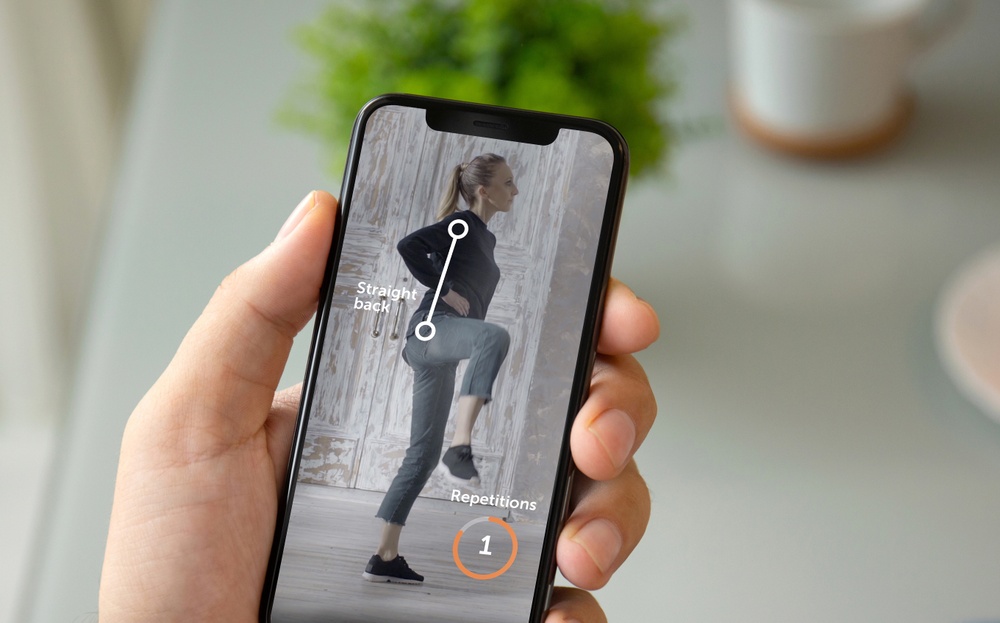New Study Shows Digital Knee Osteoarthritis Treatment Outperforms Traditional Care
February 23, 2021

Nottingham, February 23 – A newly published randomized controlled study from the University of Nottingham in England demonstrates that first-line treatment for knee osteoarthritis is more effectively delivered digitally compared to traditional care. The research shows that patients undergoing digital treatment reduced their pain by 41%, while those receiving traditional treatment saw only a 6% reduction. Additionally, digital treatment improved patients’ physical function by 48%, compared to a 13% improvement in the traditional care group.
“This is incredibly positive news for both patients and healthcare systems, especially during the ongoing challenges of the Covid-19 pandemic. We already knew that digital first-line osteoarthritis treatment is more cost-effective than traditional care. Now, we also have the first randomized controlled study demonstrating a clinically significant improvement with digital treatment over traditional methods.” – Leif Dahlberg, Chief Medical Officer at Joint Academy and Senior Professor of Orthopedics at Lund University.
Study Highlights
Chronic diseases account for 80-85% of healthcare costs globally. This study provides further evidence supporting digital healthcare solutions by demonstrating their added value in treating one of the most common chronic conditions.
The study involved 105 participants aged 45 or older with a diagnosis of knee osteoarthritis. They were randomly assigned to two groups, both receiving first-line treatment—one group through a digital program and the other through traditional care. In the digital program, patients were connected with licensed physical therapists via an app, where they received education and daily exercises. The traditional care group followed standard self-care guidelines and consulted their general practitioners as needed.
“The study results highlight the significant benefits of digital knee osteoarthritis treatment, which can help reduce the burden on healthcare systems—especially during Covid-19, when resources are already stretched. We hope this study encourages decision-makers to recognize the potential of digital alternatives for treating knee osteoarthritis.” – Sameer Akram Gohir, Physical Therapist and Researcher at the University of Nottingham.
The Growing Need for Effective Osteoarthritis Treatment
Osteoarthritis is the most common joint disease worldwide, and its prevalence is expected to rise. By 2032, one in three individuals over 45 is projected to be diagnosed with osteoarthritis. However, the recommended first-line treatment—consisting of education, guided exercise, and, when necessary, weight management—is often underutilized.
“This study highlights the substantial impact digital osteoarthritis treatment can have on both patients and healthcare systems. In addition to the significant improvements in pain and physical function, digital treatment offers lower costs and increased accessibility, particularly for those living in rural areas with limited access to physical therapists.” – Leif Dahlberg
About the Study
The study was conducted by an independent research group at the University of Nottingham. It lasted six weeks and included 105 participants aged 45 or older with diagnosed knee osteoarthritis. All participants had an initial in-person assessment at the study’s start and a follow-up visit after six weeks. The intervention group received treatment through Joint Academy’s evidence-based digital program, while the control group followed a self-care program based on standard guidelines and visited a general practitioner when needed.
The study, titled “Randomized controlled trial of Digitally delivered first-line knee osteoarthritis treatment: the Internet-based Exercises Aimed at Treating Knee Osteoarthritis (iBEAT-OA) study,” was published in JAMA Network Open on February 23, 2021.